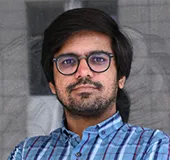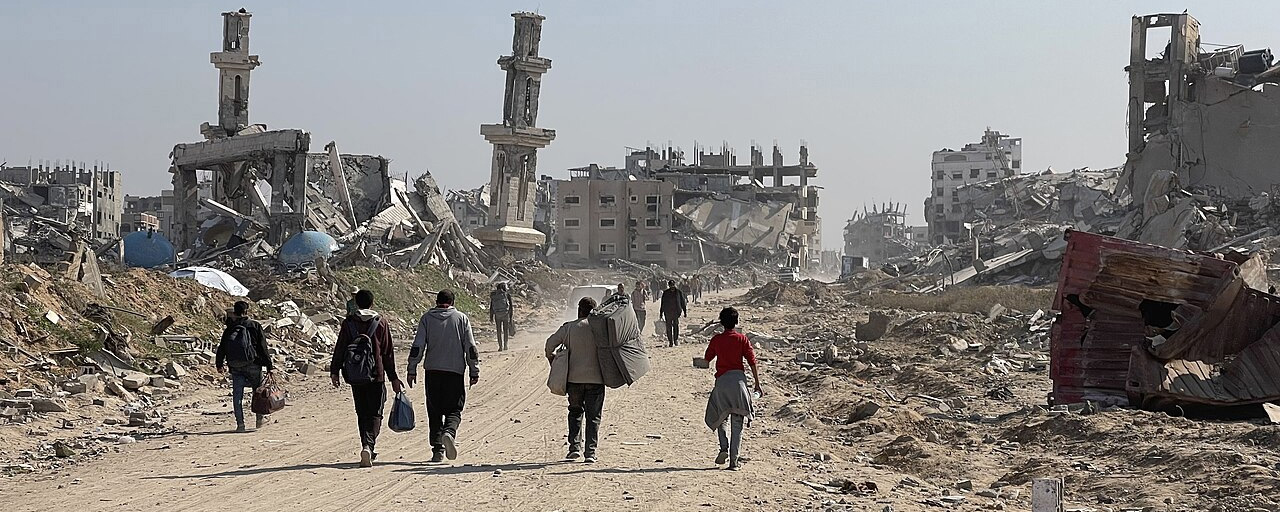Middle East: Beyond the 'New'- Instability & Shifting Fates


The recent surge in violence and instability in Syria was not entirely unexpected. Today's geopolitical environment suffers from a kind of attention deficit disorder, where superficial agreements, ceasefires, and headline-grabbing conflict resolutions are prioritized over addressing long-standing and deep-seated political fissures. The terrorist attack by Hamas on Israel in October 2023 and the ongoing war in Gaza have derailed the region's forward-looking plans. The debate on a 'new Middle East' has dramatically shifted, from initial optimism to present uncertainty.
Since 2023, the Gaza war, a domestically preoccupied and wary Israel, a surviving Hamas, disruptions to vital waterways like the Red Sea, an Israel and US-led strike against Iran’s nuclear program, and an Iranian missile retaliatory strike targeting US military facilities in Qatar have unleashed a Pandora’s Box of troubles in a geography seeking a new era of development, economic growth, prosperity, and trade. From the proposed India-Middle East-Europe Economic Corridor (IMEC) to Dubai, Abu Dhabi, Doha, and now Riyadh aspiring for centrality in global financial and diplomatic highways, today's predictions on what a ‘new Middle East’ will look like have perhaps gone off track. Many Arab states are now seeking to seat themselves on a throne of neutrality. Concurrently, they are also realizing that doing so is only set to get harder. A prime example of this is Saudi Arabia, which was initially slow to take a strong political stand on Israel’s actions in Gaza, but has now clarified its policy, linking any rapprochement with Israel to the recognition of a Palestinian state.
The last few months are more reminiscent of the old Middle East than anything new. Beneath the veneer of Dubai's shimmering towers, the grand ideas driving NEOM in Saudi Arabia, and the ambitions to turn the region into a global hub for AI, high-tech products, semiconductors, and the future of innovation—are fundamental geopolitical questions that were once swept under the rug for another day, but are now rearing their ugly heads. A concept fast gaining popularity in the West today is that regional powers will take ownership for policy-making in finding collective solutions to crisis points. Foreign presence in the Middle East, mostly American and European, is expected to reduce and reorient to address emerging threat perceptions, particularly China's rise as a superpower and Russia's re-establishment of itself as the key strategic challenge to continental Europe.
In some ways, Syria is becoming a litmus test. After the near collapse of Bashar al-Assad’s nearly three-decade-long rule and the end of a half-century hold of the Baathist regime in Damascus, the self-declared revanchist jihadist and head of Hayat Tahrir al-Sham (HTS)—which was only delisted as a terrorist group in Washington in July 2025—Ahmed al-Sharaa (formerly known as Abu Mohammad al-Jolani), now faces the task of walking a tightrope and aligning more with Arab states backed by the US and Europe than Iran, Russia, and China, who are now the Assad family’s sidelined patrons. However, the West’s enthusiastic normalization of al-Sharaa’s swift power grab understated and ignored difficult ethnic and political challenges suppressed under Assad’s iron fist, who came from an Alawi minority ethno-religious sect in a Sunni-majority state.
The massacre of Alawites in the country’s coastal areas in and around the Latakia Governorate in March 2025 – despite Alawi elders theoretically agreeing to support al-Sharaa’s rise – illustrated the further difficult task ahead for intra-Syrian integration. Tensions flared up a few months later, this time in Suweida, southern Syria, where clashes between the Bedouin tribe (mostly Sunni) and groups affiliated with the Druze community - such as those led by Sheikh Wahid al-Balous and Sheikh Hikmat al-Hajri - have led to over 1,000 deaths. The violence was sparked by the kidnapping of a Druze merchant on a highway. In response, Israel bombed al-Sharaa’s military headquarters in Damascus. Adding a further layer of complexity, Druze are considered a key minority in Israel, and Prime Minister Benjamin Netanyahu’s government has vowed to protect their interests in Syria. The attacks on al-Sharaa occurred despite recent contact established between the new Syrian leadership and Israel.
Syria is not alone in this boat. Lebanon is another state undergoing a delicate transformation as President Joseph Aoun seeks to stitch the country back together in the wake of a weakened Hezbollah. Geopolitical diplomacy can only metaphorically take the horse to water – but for it to drink, it has to be willing, thirsty, and find itself in a secure location. Ideological and political fault lines, in addition to the challenge of building inter-ethnic frameworks, present a difficult task under the ongoing geopolitical competition in the Middle East. However, at the end of the day, they are as critical as solving Syria’s economic devastation. One cannot be solved without addressing the other. To sweep under the rug conflicts pertaining to ideology and ethnicity and assume that money alone can solve the quandaries of a complex state structure is ideologically flawed. Saudi Arabia has announced investment for Syria worth US 614 billion, while the UAE has already inked an 800 million deal to take the critical port Tartus on the Mediterranean coast. Moreover, the US has also de-designated al-Sharaa and his immediate circle from terrorist designations, despite concerns raised by security agencies.
In conclusion, the idea of a ‘new Middle East’ is neither theoretical nor too ambitious to achieve. Indeed, the Abraham Accords, I2U2, and IMEC are tangible realities pushing the region toward transformation. Ultimately, security enables economic prosperity, and the core concern for the Middle East today is the future trajectory of its security landscape. While post-2023, Israel is playing a large and often overstated role, other regional actors and stakeholders will need to step into this morass to ensure an equitable geoeconomic level playing field for the future. Equity in shaping a 'new Middle East' must come from within the region, and it is now time for regional actors to openly embrace this responsibility."
(Kabir Taneja is the Associate Director and Fellow at the Strategic Studies Programme at the Observer Research Foundation. This article is published by ORF.)